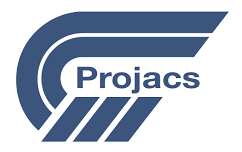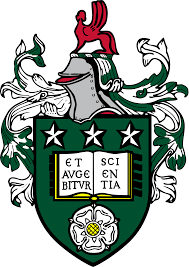
Mechanical Installation Techniques, Testing, Handover, Operation and Maintenance
Course ID: 2512227101436EGI
Course Dates : 22/12/25 Course Duration : 5 Studying Day/s Course Location: Dubai, UAE
Language: Bilingual
Course Category: Professional and CPD Training Programs
Course Subcategories: Operations and Process Excellence
Course Certified By: * Projacs Academy
* Professional Training and CPD Programs
Certification Will Be Issued From :
KSA
Course Fees: £2,958.13
Vat Not Included in the price. VAT may vary depending on the country where the course or workshop is held.
Click to Pay
Contact us for more information Sales@e-s-hub.com
Course Information
Introduction
Mechanical systems form the backbone of countless industries, from manufacturing plants and energy facilities to commercial buildings and infrastructure projects. The installation, testing, handover, operation, and maintenance of these systems are critical processes that ensure safety, efficiency, and compliance with industry standards. As organizations increasingly rely on advanced mechanical technologies to meet operational demands, the need for professionals who can effectively manage these processes becomes paramount. This course addresses the growing demand for expertise in mechanical installation techniques and their associated lifecycle activities, providing participants with a comprehensive understanding of best practices and methodologies.
Despite the importance of mechanical systems, many professionals encounter challenges stemming from gaps in technical knowledge or outdated practices. For instance, improper installation methods can lead to costly downtime, while inadequate testing protocols may compromise system reliability. A notable case study involves a large-scale HVAC project in a metropolitan hospital where faulty commissioning procedures resulted in significant delays and financial losses. Such incidents underscore the critical need for structured training programs that equip individuals with the skills necessary to avoid common pitfalls and deliver high-quality outcomes.
The course content is designed to bridge these gaps by integrating theoretical frameworks with practical applications. Drawing from established models such as Total Productive Maintenance (TPM) and Reliability-Centered Maintenance (RCM), participants will gain insights into optimizing asset performance and extending equipment lifespan. By mastering these principles, they will be better equipped to address real-world challenges, such as ensuring seamless integration of new machinery into existing systems or troubleshooting complex operational issues.
For organizations, investing in this training translates into tangible benefits, including reduced maintenance costs, improved productivity, and enhanced safety records. On an individual level, participants will acquire valuable competencies that not only bolster their professional credibility but also position them as indispensable assets within their teams. Consider the example of a senior technician who implemented predictive maintenance strategies learned through similar courses, leading to a 20% reduction in unplanned outages at his facility—a testament to the transformative potential of specialized training.
Industry trends further reinforce the relevance of this course. With the rise of Industry 4.0 and smart manufacturing, there is an increasing emphasis on data-driven decision-making and automation in mechanical operations. Professionals must adapt to these changes by acquiring up-to-date skills that align with evolving technological landscapes. This course incorporates discussions on emerging tools and technologies, such as IoT-enabled monitoring systems and digital twins, ensuring participants remain at the forefront of innovation.
Ultimately, this program offers a unique opportunity to deepen one's understanding of mechanical systems while fostering practical capabilities that drive organizational success. Whether you're responsible for overseeing installations, managing maintenance schedules, or ensuring regulatory compliance, the knowledge gained here will empower you to excel in your role and contribute meaningfully to your organization’s objectives.
Objectives
By attending this course, participants will be able to:
Analyze the fundamental principles of mechanical installation techniques and their impact on system performance.
Evaluate testing methodologies to ensure compliance with international standards and minimize operational risks.
Design effective handover procedures that facilitate smooth transitions between project phases.
Implement preventive and predictive maintenance strategies to optimize equipment reliability and longevity.
Apply troubleshooting frameworks to identify and resolve common operational issues efficiently.
Assess safety protocols and risk management practices to mitigate hazards during installation and maintenance activities.
Synthesize insights from emerging technologies to enhance operational efficiency and sustainability.
Who Should Attend?
This course is ideal for:
Mechanical engineers, technicians, and supervisors involved in installation, testing, and maintenance activities.
Project managers overseeing mechanical systems in construction, manufacturing, or energy sectors.
Facility managers seeking to improve operational efficiency and reduce downtime.
Quality assurance professionals tasked with ensuring compliance and reliability.
Individuals aspiring to advance their careers in mechanical engineering or related fields.
These groups will find the course valuable due to its focus on equipping them with actionable skills and knowledge directly applicable to their roles. While prior experience in mechanical systems is beneficial, the course is structured to accommodate both intermediate learners and advanced practitioners, making it accessible to a broad audience.
Training Method
• Pre-assessment
• Live group instruction
• Use of real-world examples, case studies and exercises
• Interactive participation and discussion
• Power point presentation, LCD and flip chart
• Group activities and tests
• Each participant receives a 7” Tablet containing a copy of the presentation, slides and handouts
• Post-assessment
Program Support
This program is supported by:
* Interactive discussions
* Role-play
* Case studies and highlight the techniques available to the participants.
Daily Agenda
The course agenda will be as follows:
• Technical Session 08.30-10.00 am
• Coffee Break 10.00-10.15 am
• Technical Session 10.15-12.15 noon
• Coffee Break 12.15-12.45 pm
• Technical Session 12.45-02.30 pm
• Course Ends 02.30 pm
Course Outlines
Fundamentals of Mechanical Installation
Overview of mechanical systems and components.
Principles of safe and efficient installation techniques.
Tools and equipment used in mechanical installations.
Case studies highlighting successful installation projects.
Day 2:
Testing Methodologies and Compliance
Types of tests conducted during mechanical installations (e.g., pressure, vibration).
International standards and regulatory requirements.
Best practices for documenting test results and reports.
Troubleshooting common errors identified during testing.
Day 3:
Handover Procedures and Documentation
Key elements of a comprehensive handover process.
Roles and responsibilities of stakeholders during handover.
Developing clear documentation for future reference.
Real-world examples of effective handovers.
Day 4:
Operation and Preventive Maintenance
Basics of operating mechanical systems safely and efficiently.
Introduction to preventive and predictive maintenance strategies.
Scheduling and planning routine maintenance tasks.
Using technology for condition-based monitoring.
Day 5:
Advanced Topics and Emerging Trends
Risk assessment and management in mechanical operations.
Incorporating IoT and AI into maintenance practices.
Sustainability considerations in mechanical systems.
Group discussion: Applying course learnings to participant-specific scenarios.



















































